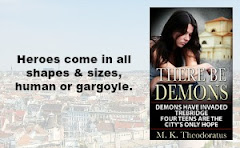Hi ... Welcome to my first guest blogger Nathaniel Sewell, the author of Fishing for Light, a satire. My initial topic is "My Worst Writing Fear -- with blogger's name", but this is not just a gripe session. There has to be a suggested solution to the agony. I'm now scheduling Thursdays for fiction writers. Send for Guidelines. Email is on the sidebar.
My Worst Writing Fear
-- Nathaniel Sewell
As a storyteller, I don’t worry about making grammatical
errors because I know, as sure as the Earth will continue to orbit the Sun, it
will happen. And I know I’ll make every effort with the help from editors, who
are much smarter than ‘I’, to weed out those nasty incantations that cause me
to hide in naked literary shame.
I don’t worry about the length of a novel because the story
should naturally unfold at its own pace. Or that I break some sacrosanct rule
that the high priest of writing has cast down to us, we the tiny brained mortal
who has the audacity to think they can create a meaningful story. And I don’t
worry about writing an ugly scene showing how human beings can disgustingly
treat their fellow man and then justify their actions using religion or
political expediency.
I don’t worry about creating a stereotypical character that
might swerve into being a cliché. And I don’t worry about writing a sex scene
between a hot babe and a hairy, height-challenged dude while being filmed by
three fat little pigs smoking cigars. However, what I write has to have a point
and is not written to just shock the reader’s senses, because I respect the
reader.
But as you can tell, I really don’t much care what anybody else thinks,
or says, or opines about my writing. I think to really write, to really devote
your life to creating meaningful, art, as an artist you should be fearless. If
writing is to evolve, the writer has to take risks. BUT, save for that one
person, there is one person that I DO worry about, and I fear what that person
thinks about from behind their eyeballs - the reader. I respect and fear only
the reader because they have taken time from their life to read what I have
created.
My worst, worst writing fear is that the reader will stop,
reading. If my number one goal is to keep the reader reading, then I know all
my effort should focus on writing that is well crafted, entertains, and
informs. It is an odd tight rope that we have to navigate. If the story is almost
pornographic that would seem to cater to our base impulses, but then again,
some guy named, Vladimir Nabokov wrote - Lolita. Or another guy wrote using the
‘N-word’, that guy was named, Mark Twain. I think we all know there are
numerous other examples of writers sharing an entertaining story that pushes
our collective readerships – buttons. Right? Otherwise governments and school
boards would have nothing left to do.
So my worst fear is that I stop the reader from reading
something true, authentic and unfiltered. That I did not share with them my
inner most thoughts, and take them on a short journey into a world they might
not understand. Or a world that they secretly might want to investigate, but
they just need to have the available literary transport to take them there. So,
in the end, what I fear the most is a ‘shrug’ from the reader. If that happens,
I know I have failed.
Blub: Fishing for Light
Ms Prosperina is a genetic monster trying to take over the world
by spiking the coffee at her Starry Eyed Coffee Hut chain … and she’ll stop at
nothing.
It’s up to her unwitting creator, the geneticist Professor Quan,
to stop her. In an attempt to correct his mistake, Professor Quan creates a
network of people with the power of true love genetically coded within
them.
Everything hangs in the balance when Eddie,
altered at birth by Quan’s genetic mutation powder, fails to follow his
pre-ordained destiny. The trauma of his father’s death has caused him to stray
from Quan’s master plan.
Will Quan succeed in helping Eddie regain
the light behind his eyes and will they succeed in foiling Ms Prosperina’s evil
plans?

.jpg)
.jpg)
.jpg)




